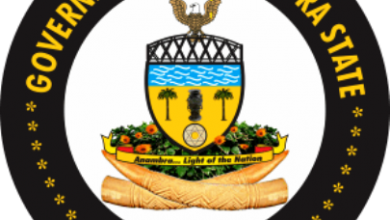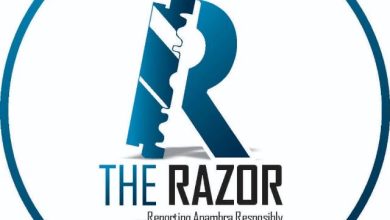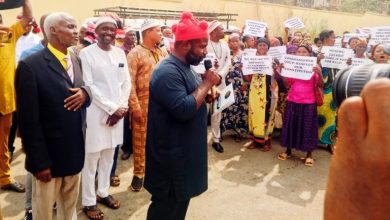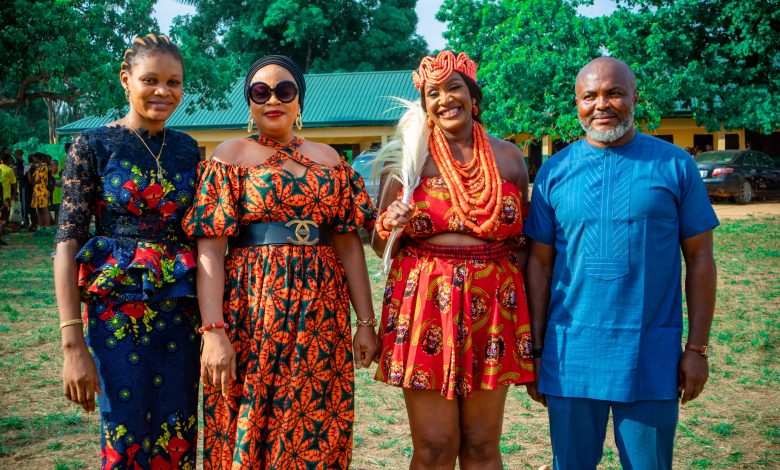
Ifeizu Joe reports that as effort to salvage the Igbo language and culture from going extinct, groups are trying to inculcate it among young students and also formulate curriculum to teach basic science subjects in Igbo Language.
In 2012, the United Nations Educational, Scientific and Cultural Organisation (UNESCO) had declared that the Igbo language was among languages that may go extinct by 2050. There have also been fears that while the Igbo language is threatened, the culture of the Igbo people is fast fading away, with the Igbo people embracing westernization.
This may have propelled many groups to spring up, with thoughts of how they can sustain the language. There have severally been groups who championed the speaking of Igbo language, while in Anambra State, under Mr Peter Obi as governor, the House of Assembly made a law mandating that businesses and other dealings would be in Igbo language every Wednesday, while students, teachers and even lawmakers and civil servants were mandated to wear traditional dresses same day.
Efforts to sustain the language has continued too. Last week, a cultural group, Ifemeluigbo Dance, organized a competition among two secondary schools in Anambra State to promote awareness on Igbo Cultural Practices and the language. The competition which was intended to hold in secondary schools across the state had the pioneer schools as Community Secondary School, Amawbia and Community Secondary School, Enugwu-Agidi, in Awka South Local Government Area and Njikoka Local Government Area, respectively.
Convener of the competition and coordinator of Ifemeluigbo Dance group, Ms Ify Nweri, a UK trained Nigerian from Anambra State said the passion to inculcate the habit of speaking the Igbo language in young students propelled her to organize the competition. She said that a people’s language and culture are their basic identifiers, and that she is unhappy that even children born in Igboland were no longer identifying with the language, instead they prefer to speak in English, thinking it is a way to show class. She regretted that while Igbos are fast jettisoning their culture and language, the whites are holding tenaciously to theirs, even when the Igbo culture proves to be more unique and beautiful.
She said: “I’m a lover of Igbo culture. Studying at Swansea University, UK, I loved how the whites cherished their culture, but I know that what we have here is a richer culture. My reason for setting up this organisation is to promote our culture and showcase it to the world.
“I believe children are among the most intelligent and creative beings I have ever observed. I became more passionate about Play, Culture, and Creative Arts during my program on developmental and therapeutic play at Swansea University. While planning play sessions and carrying out play sessions, I literally came to the conclusion that every child is different. I am very proud of my Igbo heritage that I speak proudly of my childhood; when I look at my childhood, I can proudly say I had a wonderful childhood growing up in nature and engaging in so many cultural activities. When I tell my English and Welsh friends about my Culture and how we engage in our cultural play activities, they marvel.
“Our Igbo children have “play patterns” that positively impact their development, though the activities are not well-documented by play theorists’ developmental norms. Our Igbo cultural play, dance, and creative arts are more than fun for children. They also help in their physical, emotional, and cognitive development. Children who engage in traditional dance and activities are likely to have better memory retention and cognitive flexibility. Our Igbo cultural play and dance often involve memorising steps and patterns; this helps improve children’s memory and cognitive skills,” Nweri said.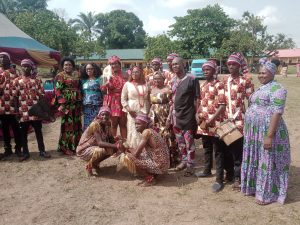
The inter-school event featured cultural dance competition, Igbo Proverbs and meanings competition and Igbo drama. Students of both schools also held moonlight games, tales by moonlight and other interesting Igbo folklores.
Principal of the host secondary secondary school, Community secondary school, Enugwu-Agidi, Mrs Thecla Azubuike, highlighted the importance of the event, saying that there was need to students and young people to be channelled to.areas where they can learn certain things about their origin. The event was attended by the leadership of both Amawbia and Enugwu-Agidi communities.
Ifemeluigbo is not alone in this attempt to promote and sustain the Igbo culture and language. In Nnamdi Azikiwe University, Awka, the institution has entered a partnership with another cultural group, Odinala Cultural Heritage Foundation (OCHIE Igbo), to develop a curriculum for teaching Science, Technology, Engineering and Mathematics (STEM) in Igbo language. 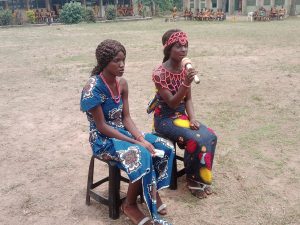
OCHIE Igbo said there is need to sustain the language, and even revive the Igbo culture, and part of ways to ensure this is to develop curriculum for teaching Science, Technology, Engineering and Mathematics in Igbo language.
During a recent event at the Nnamdi Azikiwe University, to inaugurate the group to midwife the new curriculum, the Executive Director of OCHIE Igbo, Mr Chinedum Benedict Okoro told journalists that the aim is to sustain the Igbo culture, with a belief that teaching in native language accelerates learning.
“We are partnering with Unizik for the OCHIE Igbo STEM Project. STEM means science, technology, engineering and mathematics. The project is a benign search to harness the gains associated with teaching science, technology, engineering and mathematics using the mother tongue.”
Outgone Vice Chancellor of Nnamdi Azikiwe University, Prof Charles Esimone who was also at the press conference said the institution will give the project it’s best, saying there are enough scholars in the institution to realize the project.
He said: “Advanced countries have been noted to have curriculum that are compatible with their clime, and that Igbo must develop same. All we need is the readiness to push a project like this, and when the group came to us with the idea, we quickly bought it.”
He assured that the project would enhance learning among Igbo people, adding that once the curriculum is developed, it will be cascaded to the different level of education, including primary and secondary as a way of catching them young.

